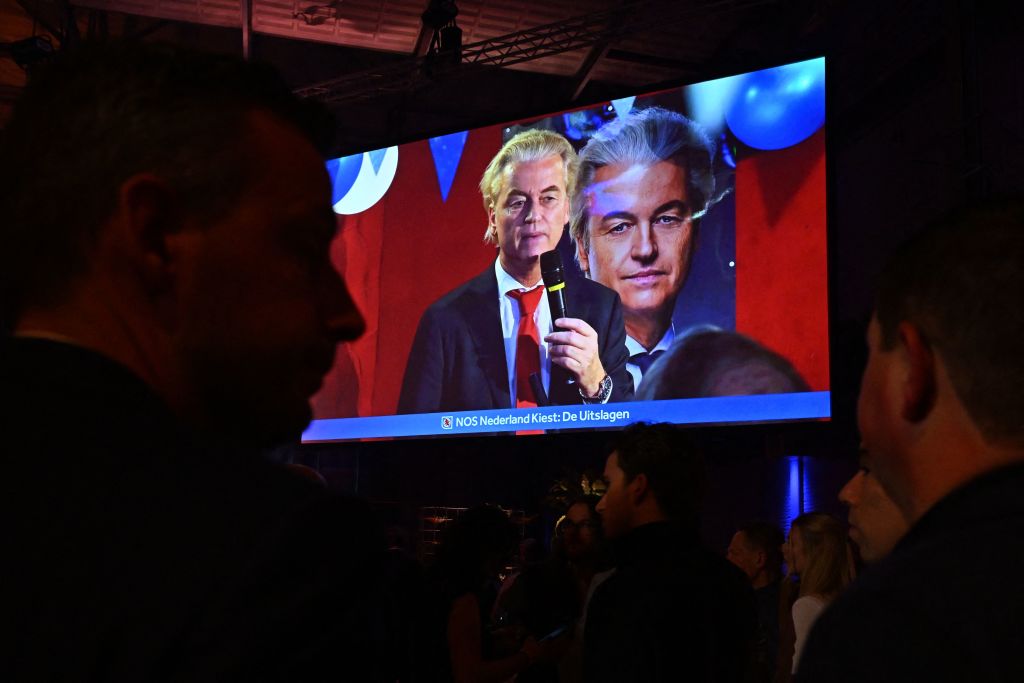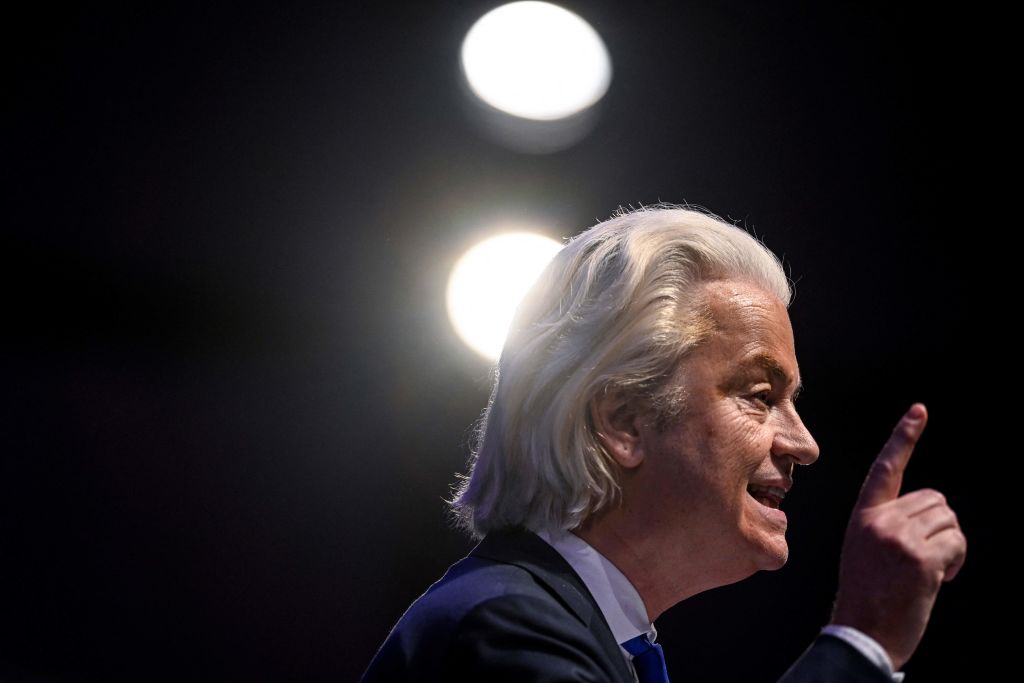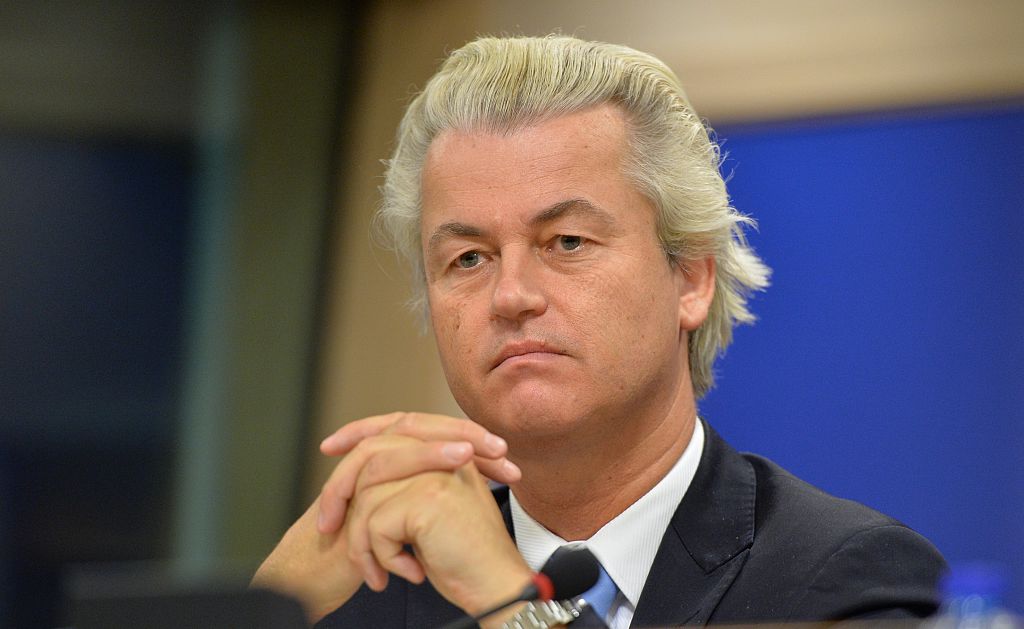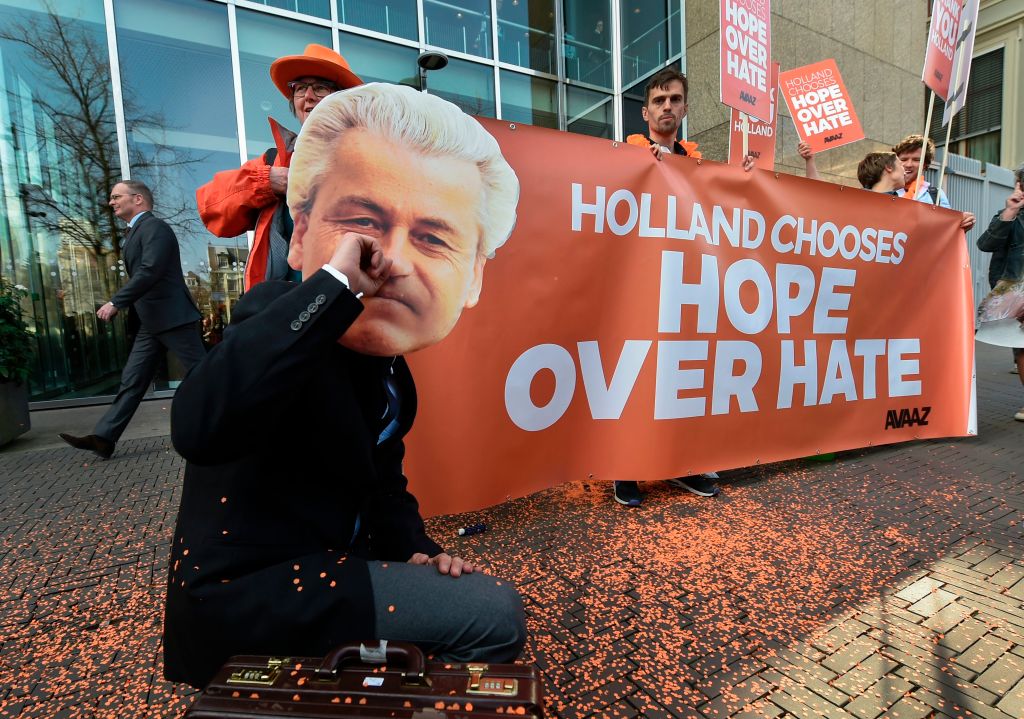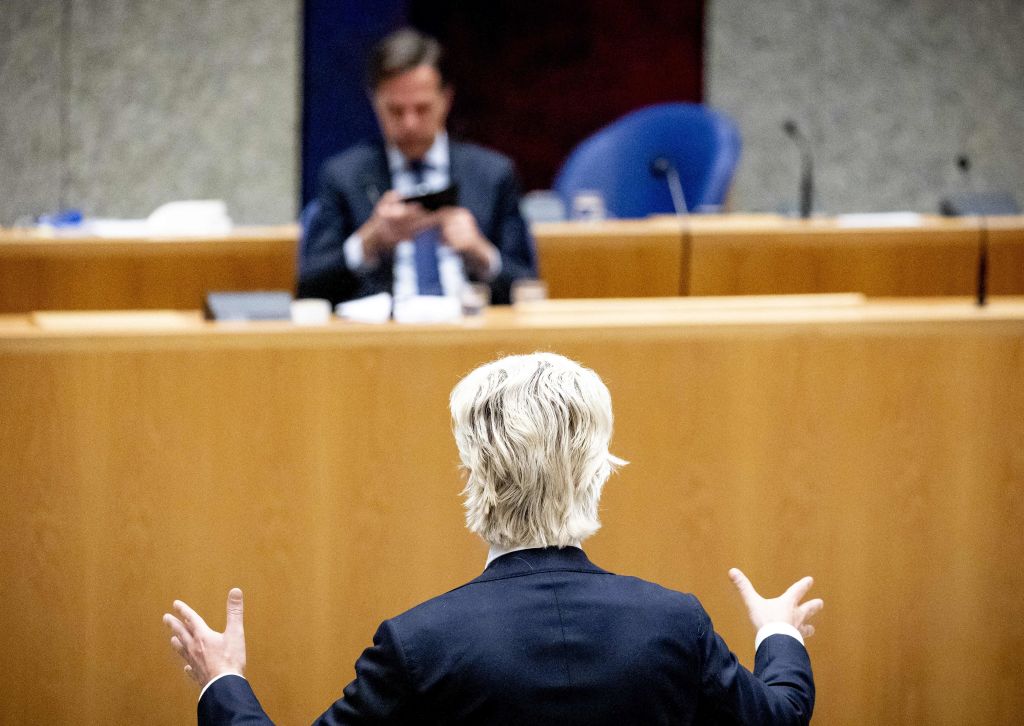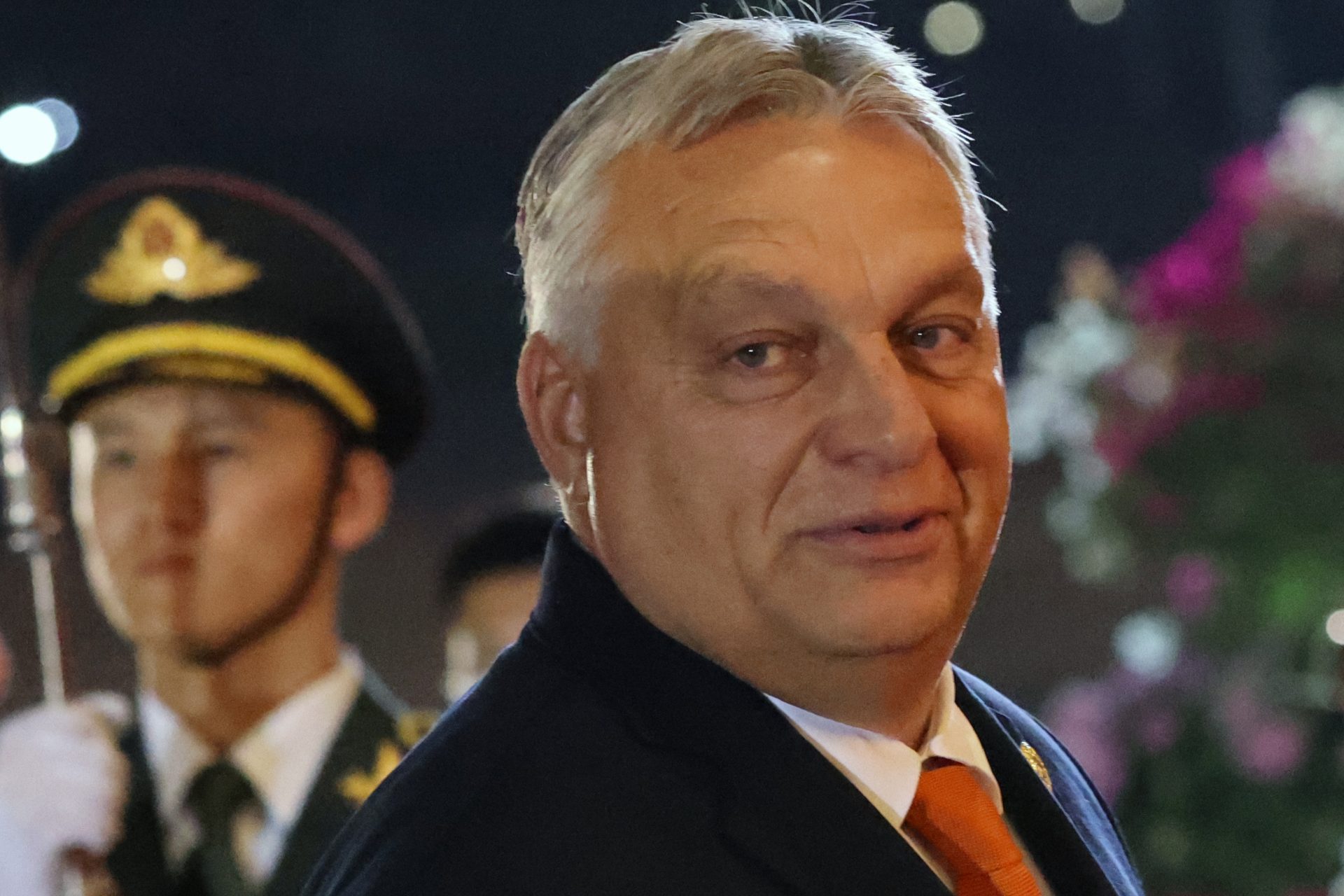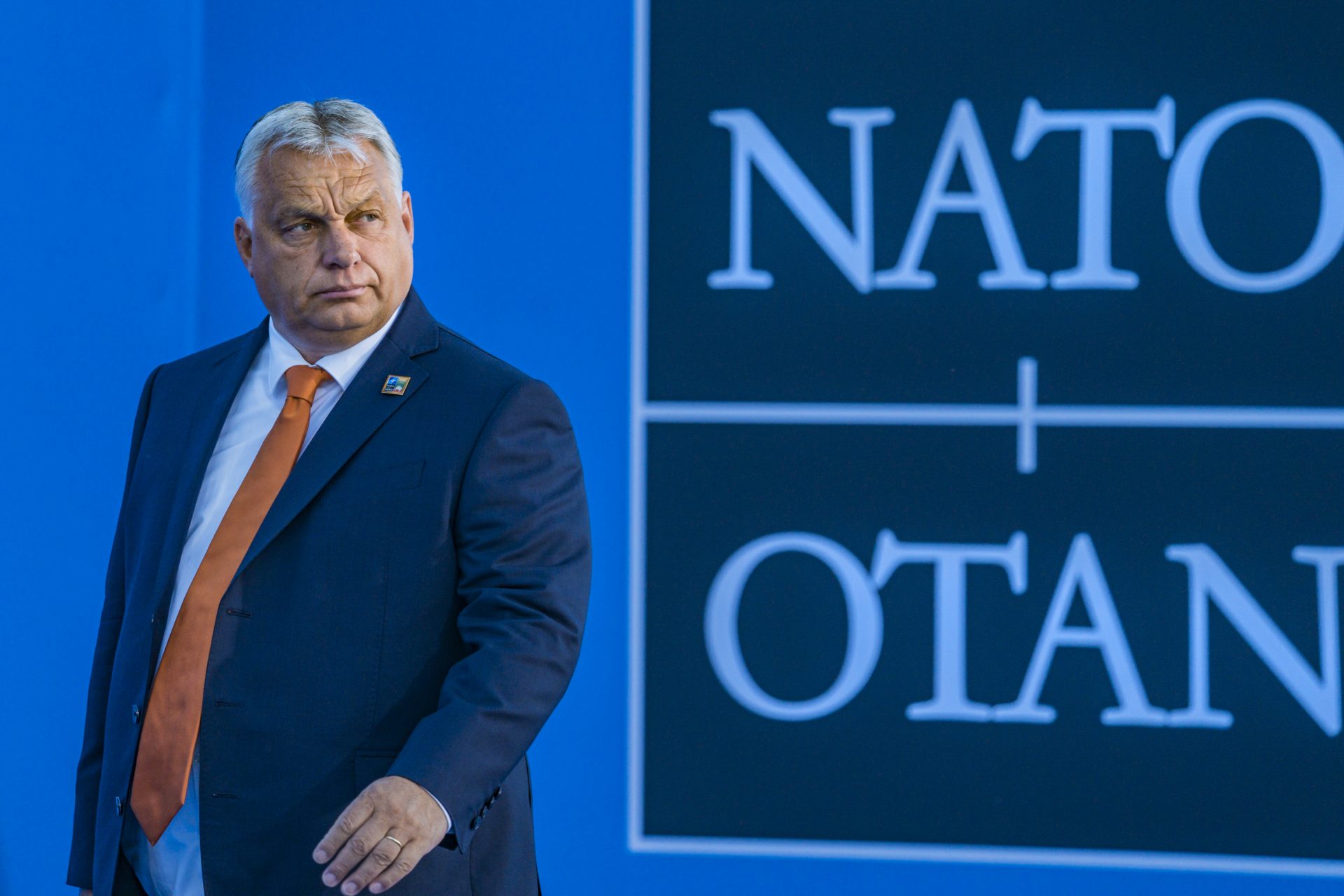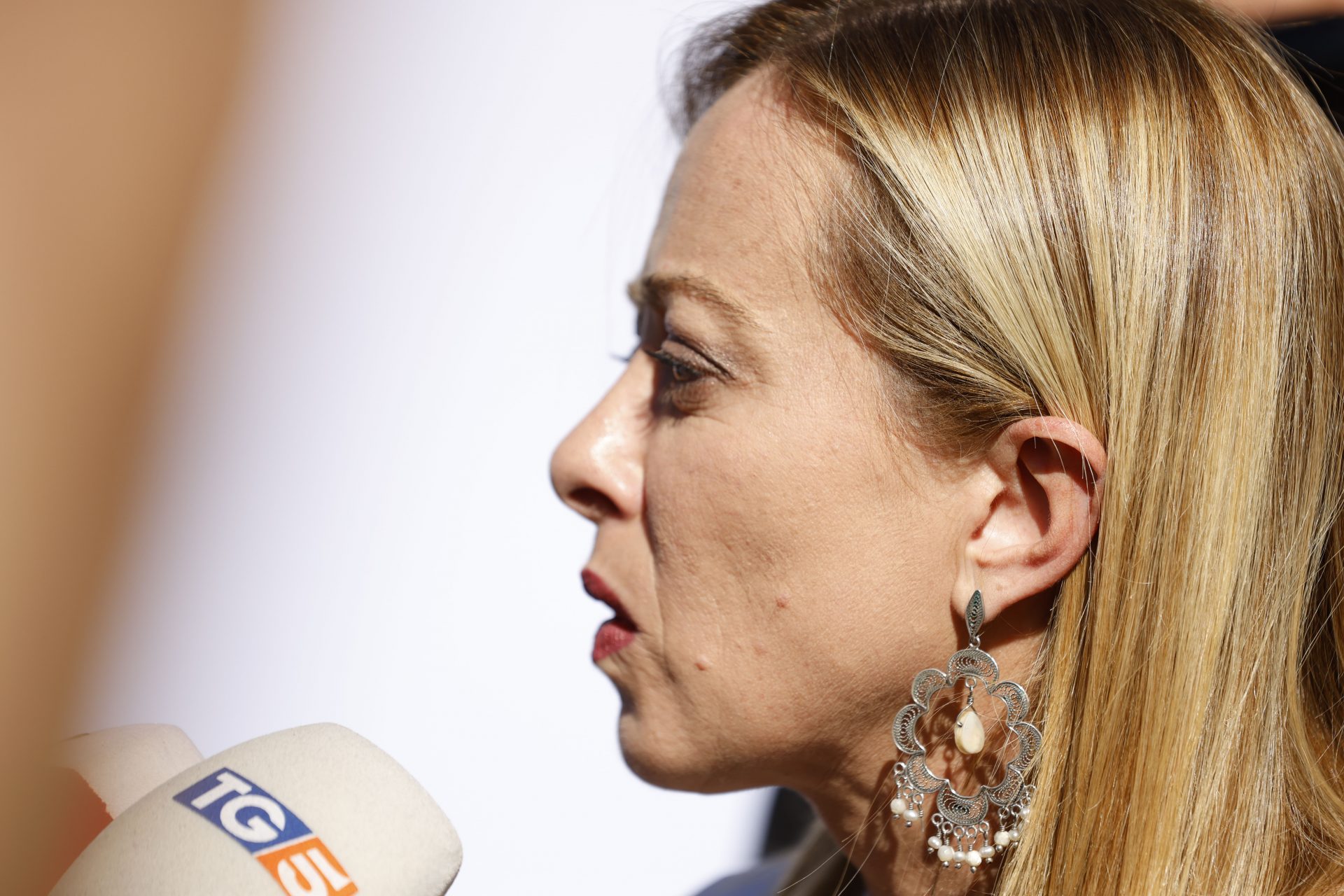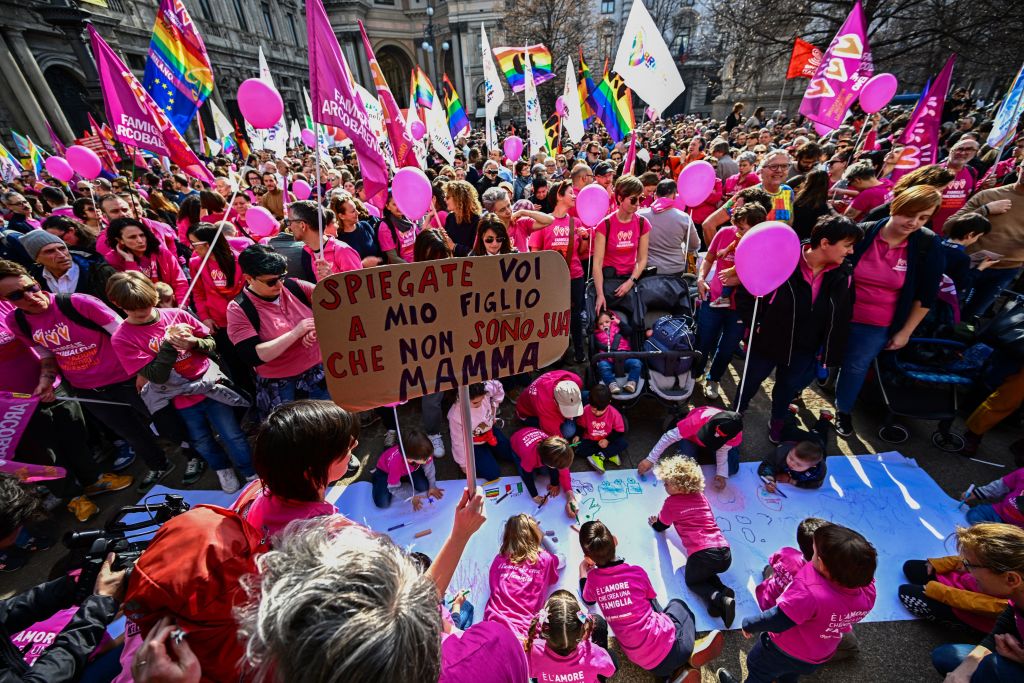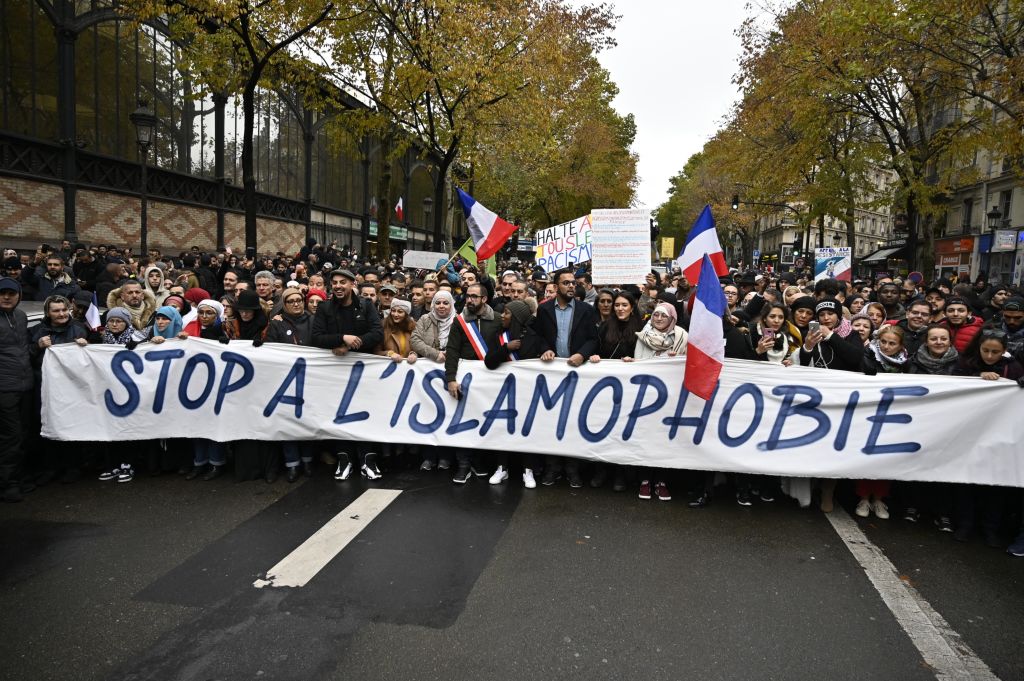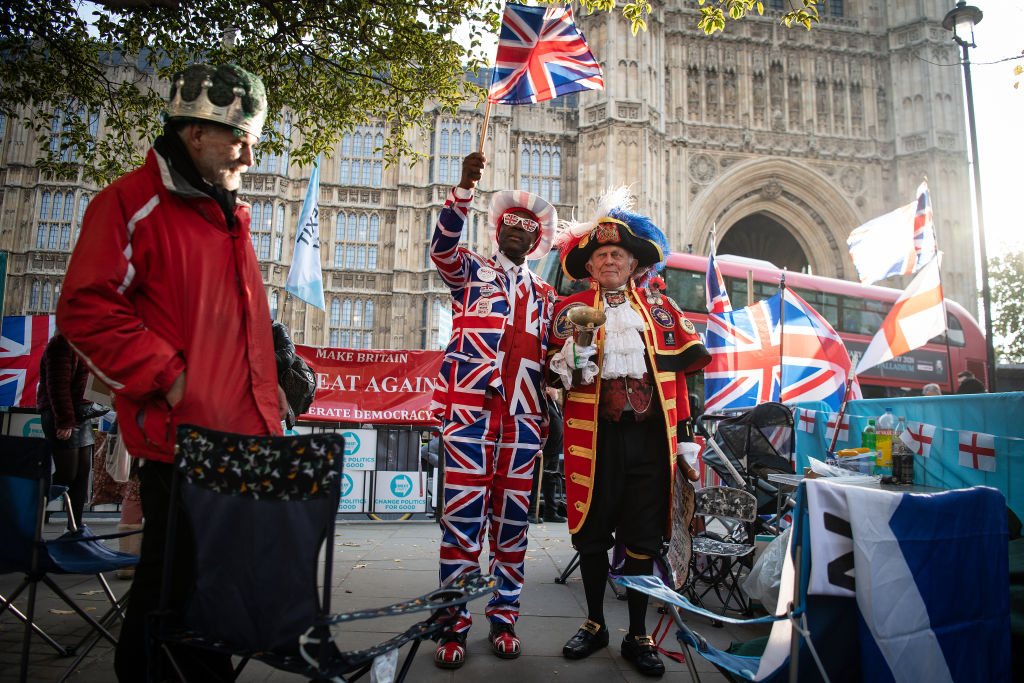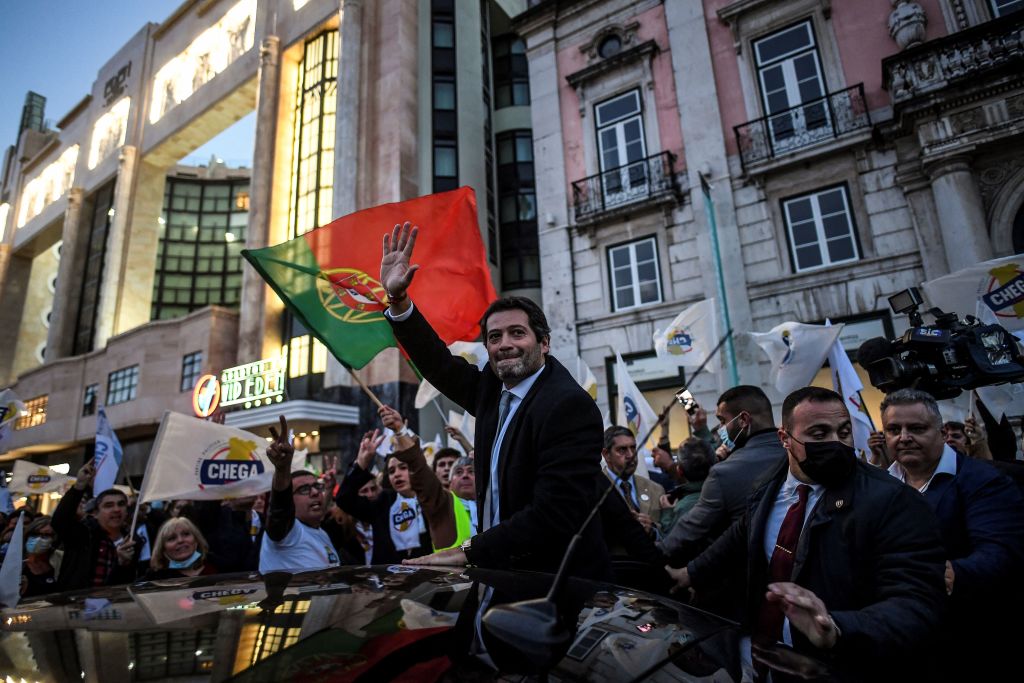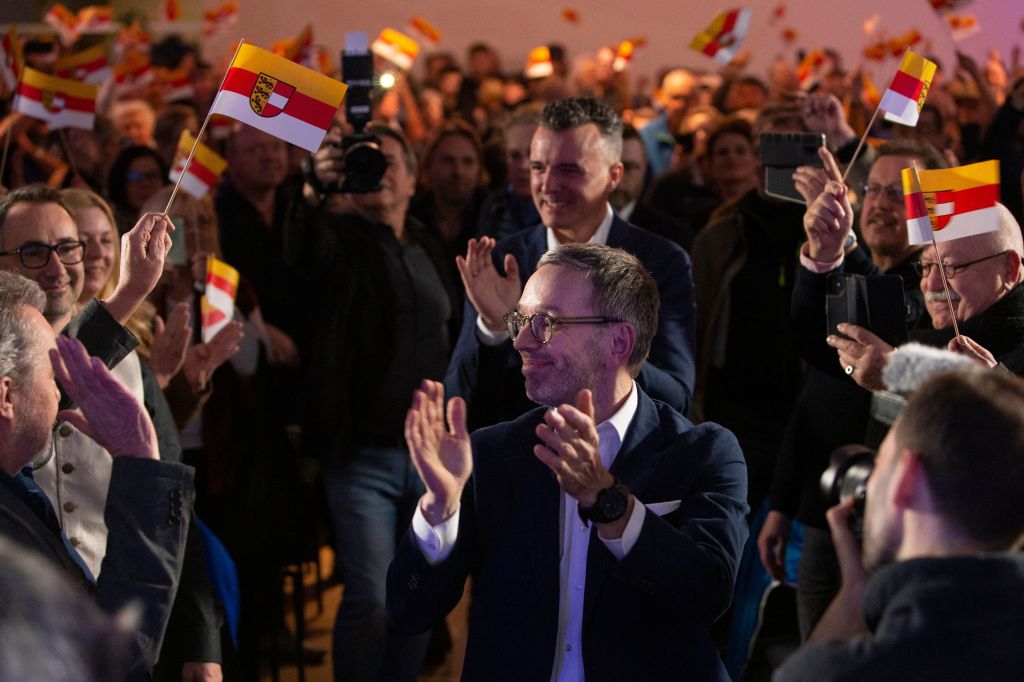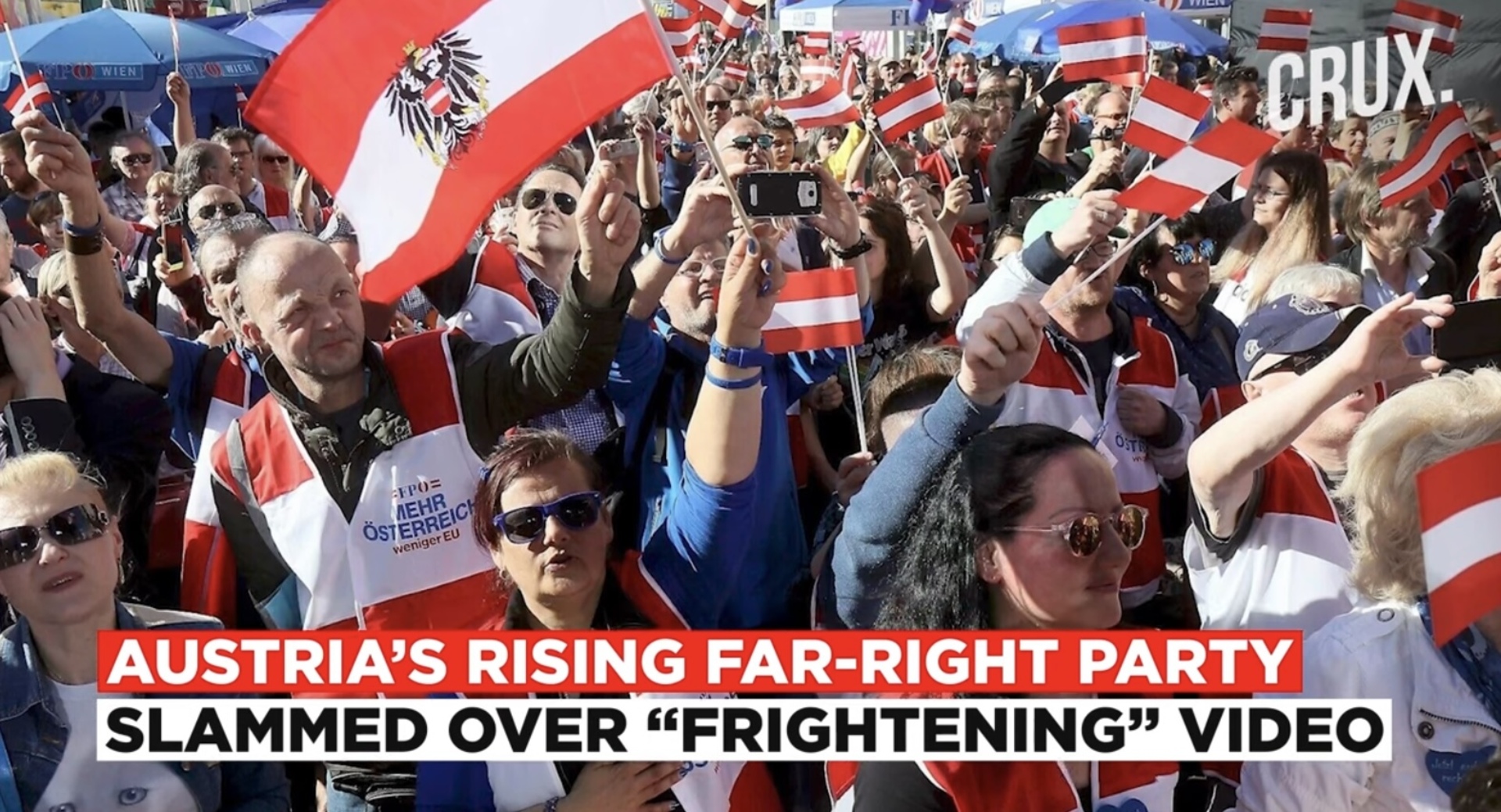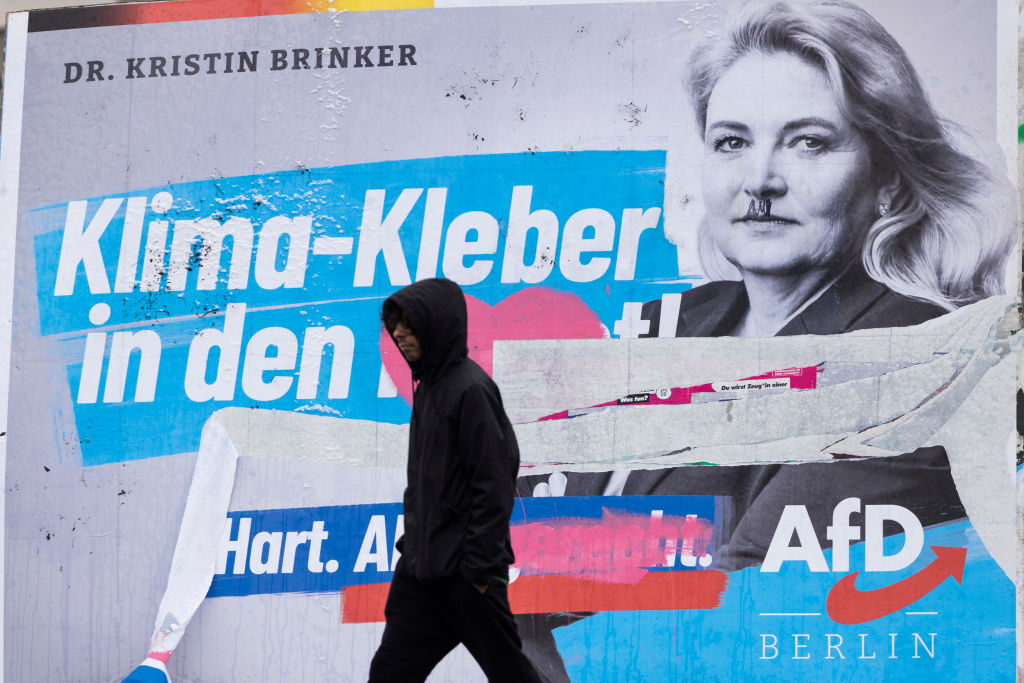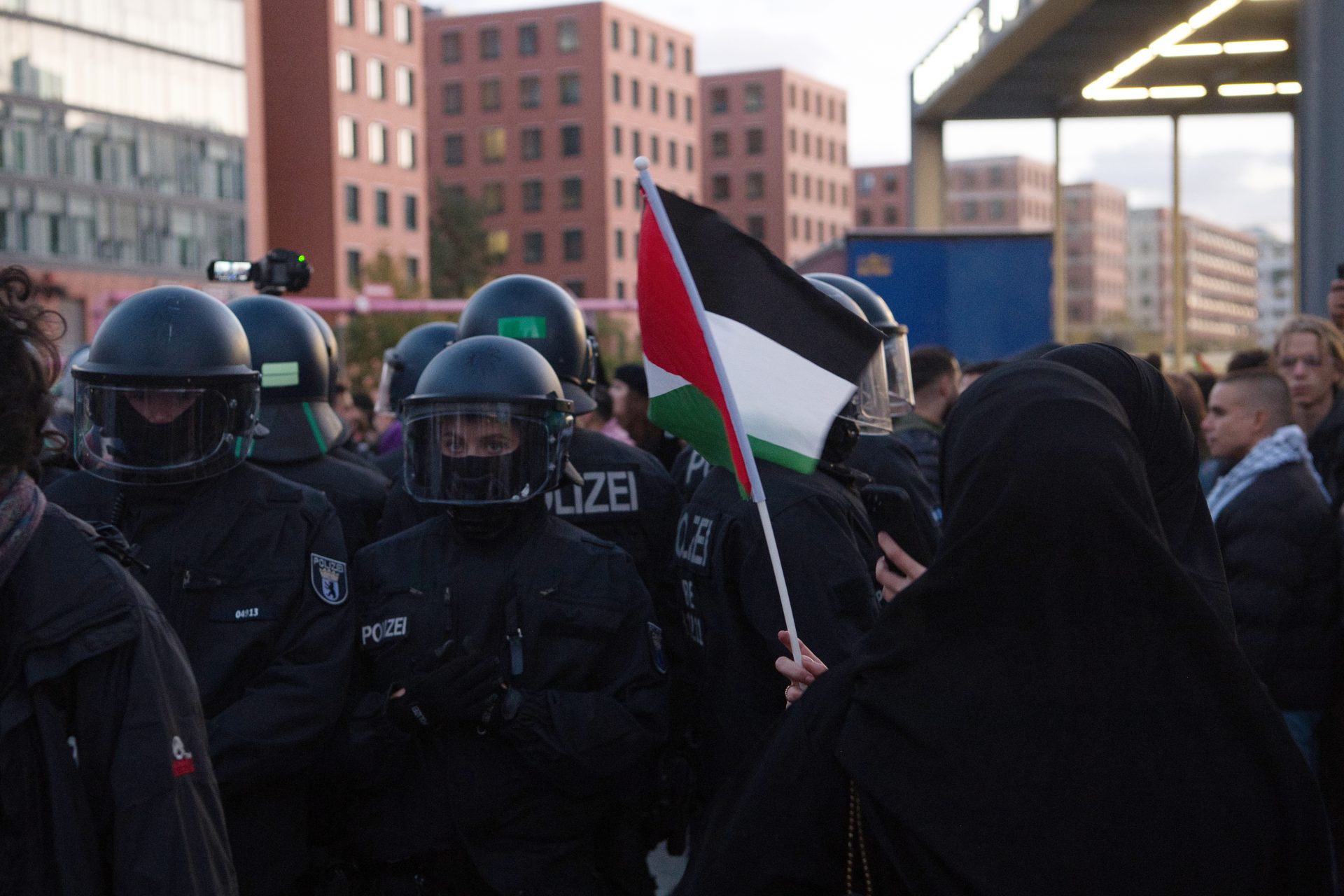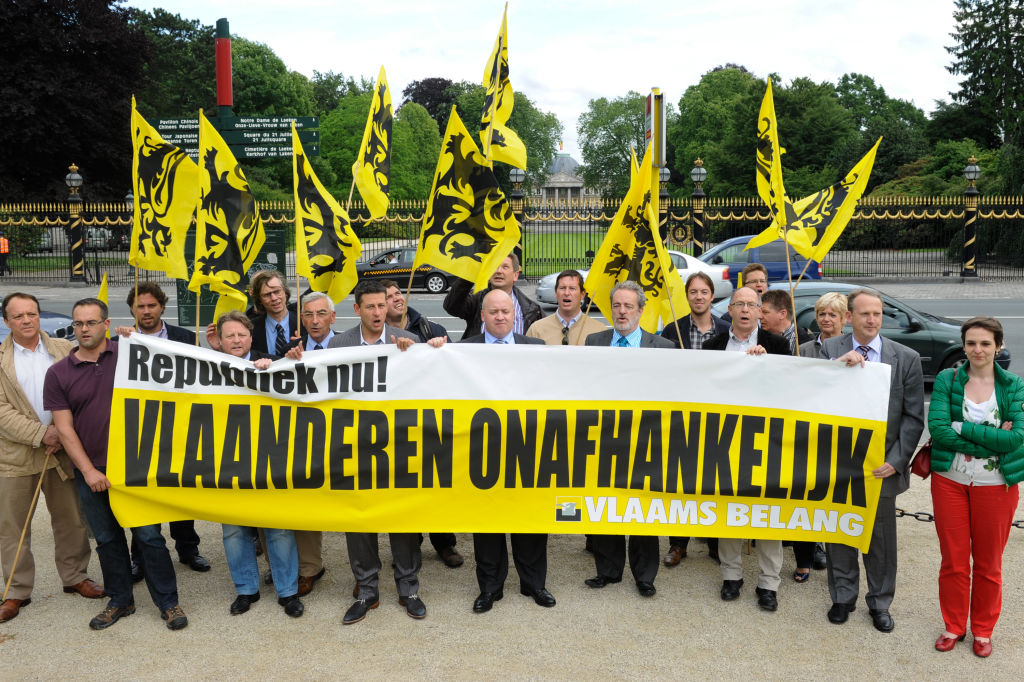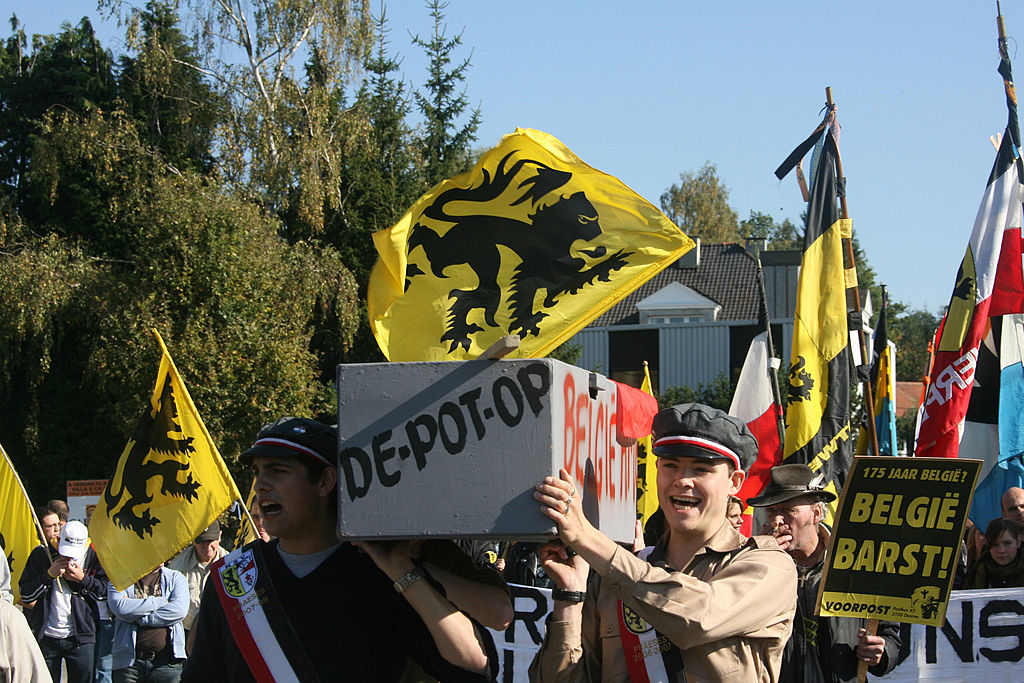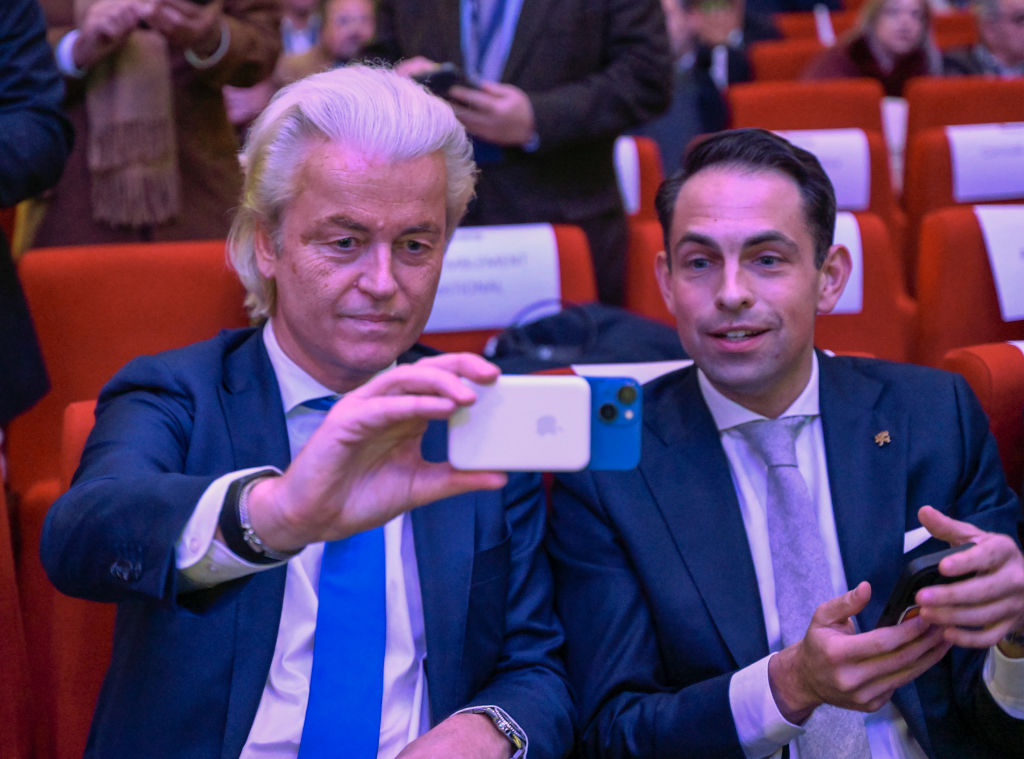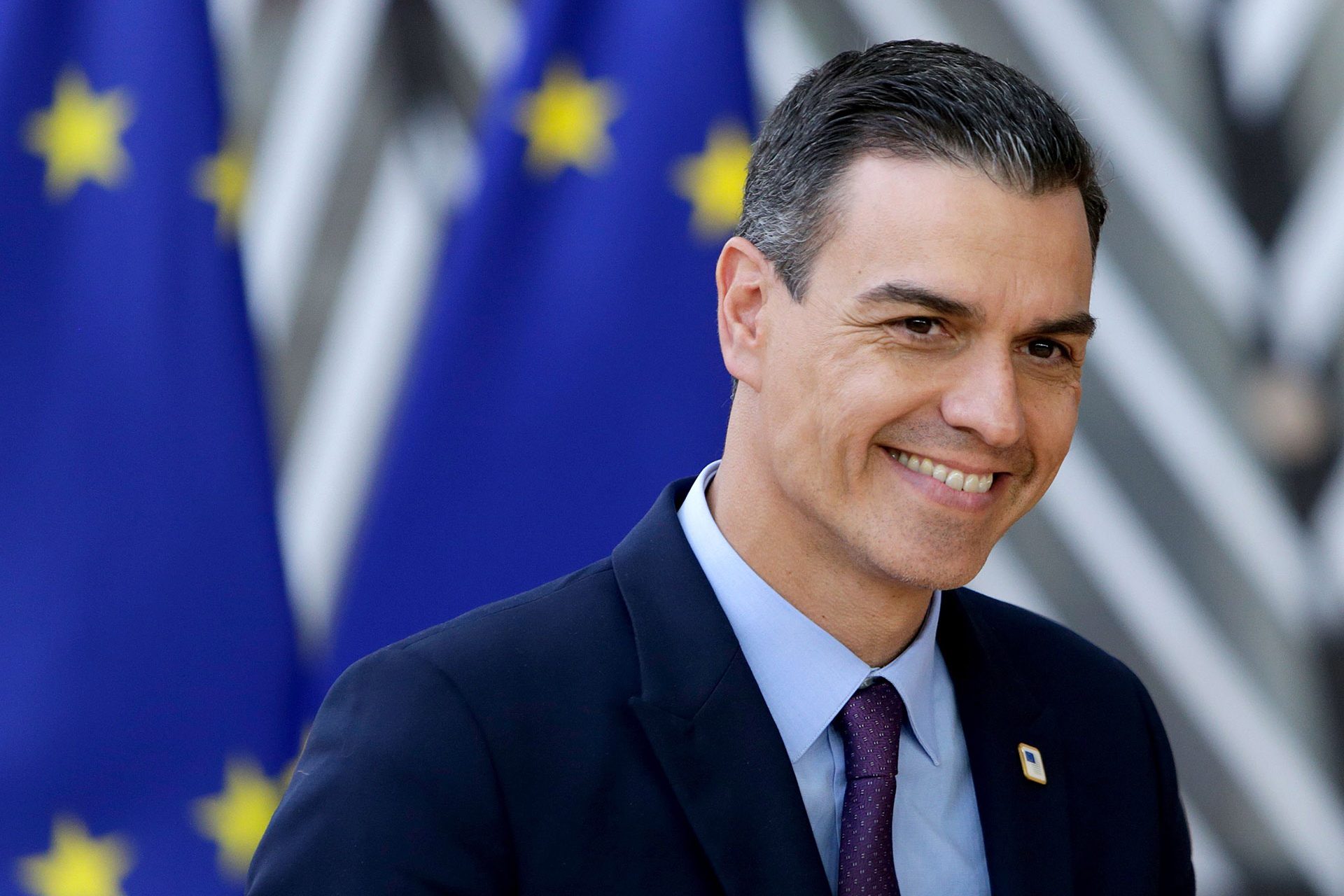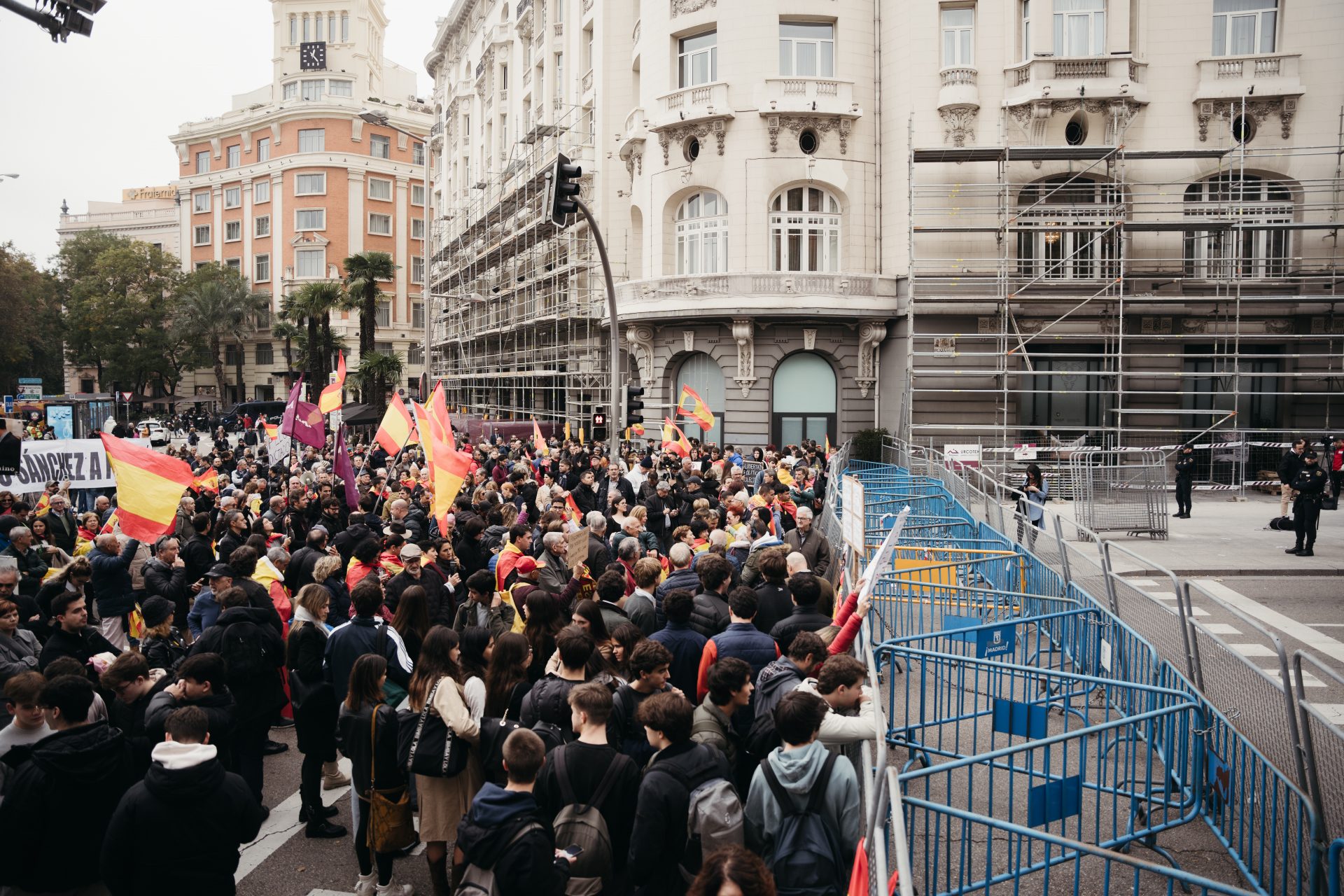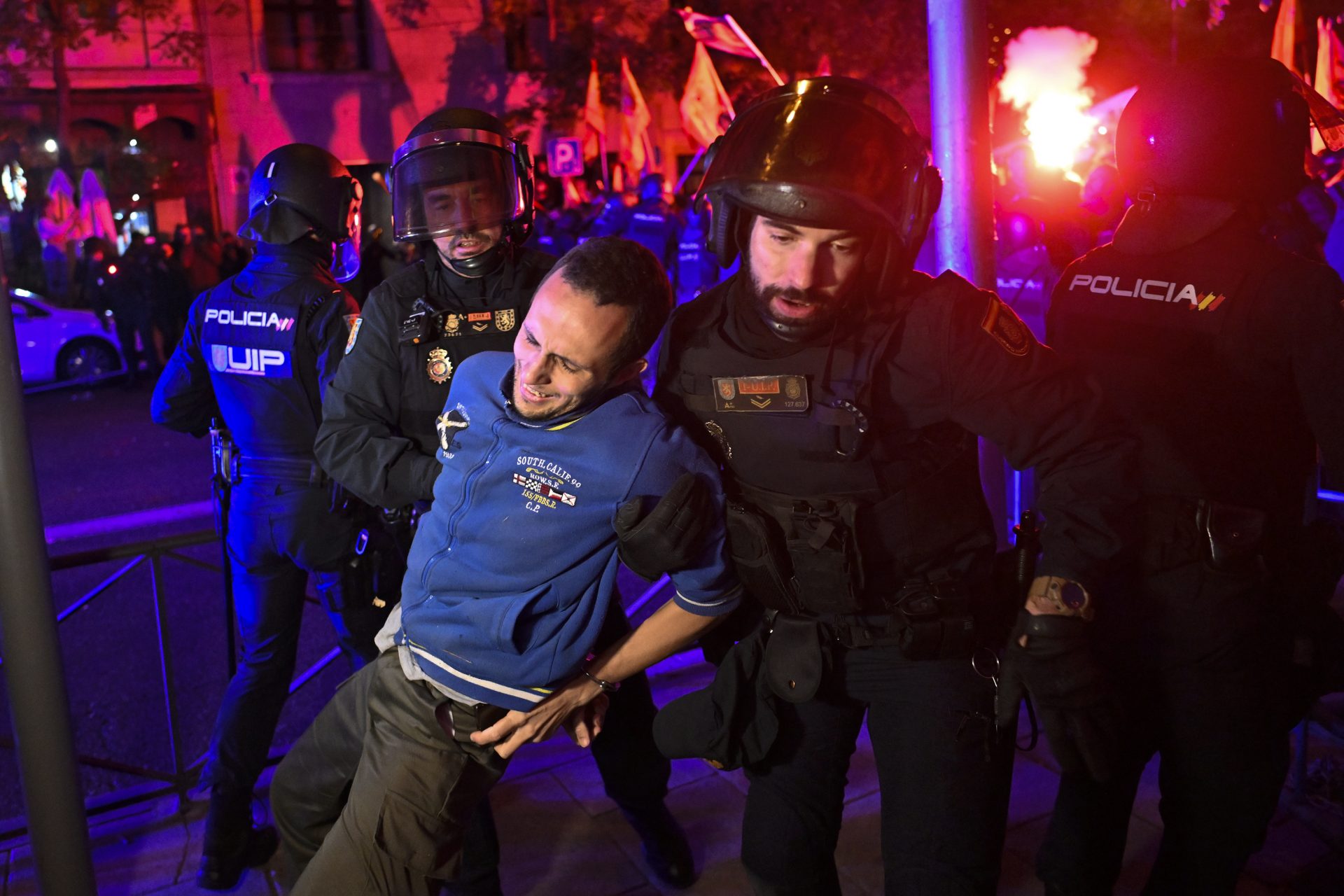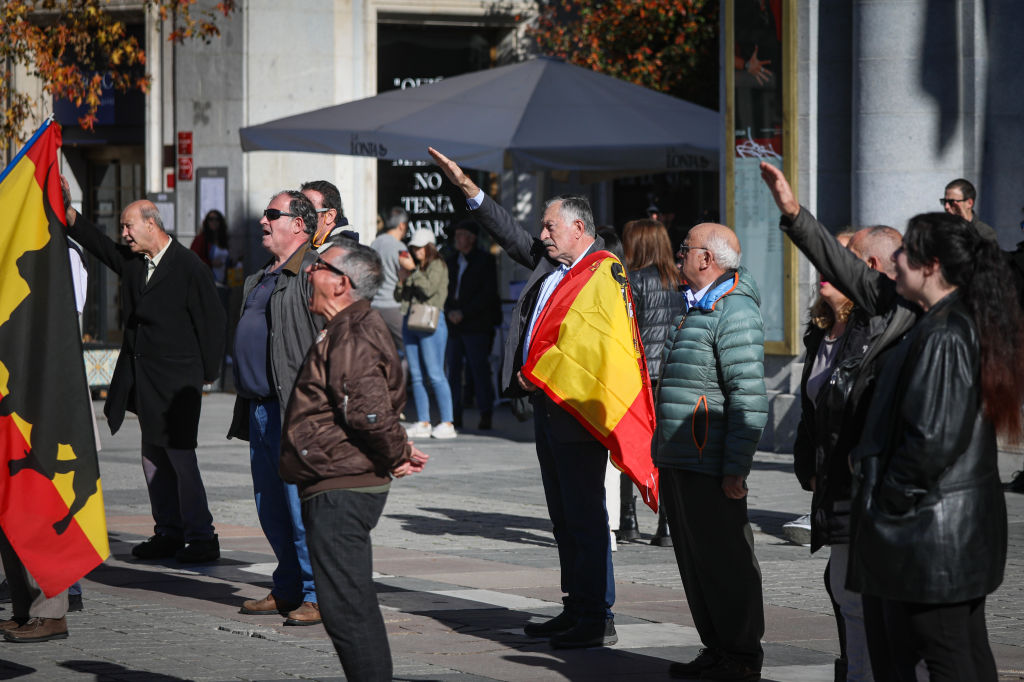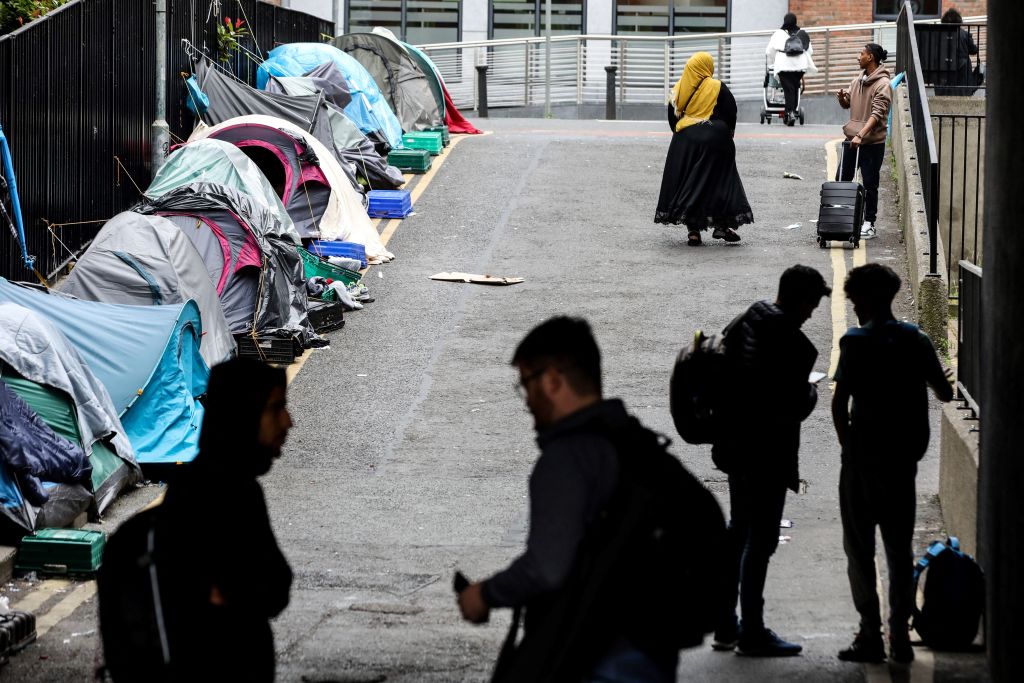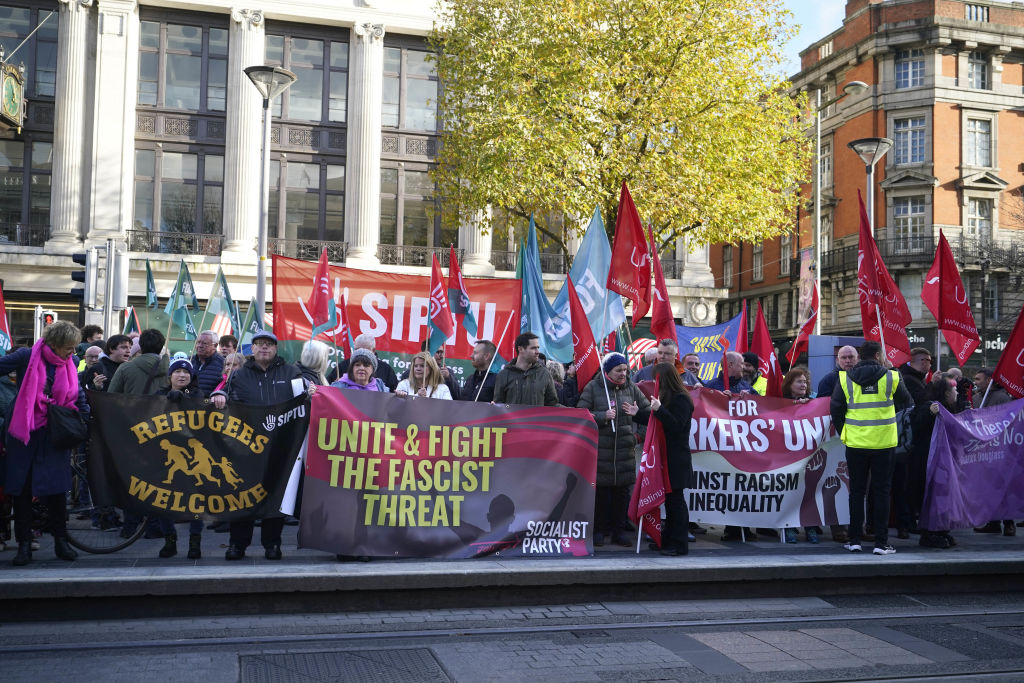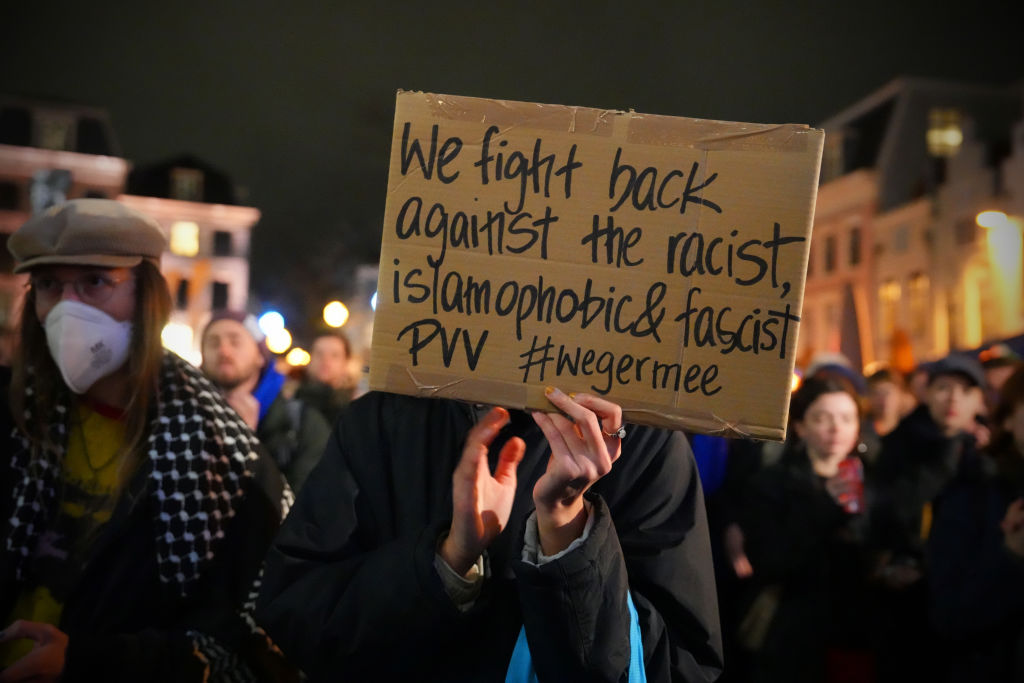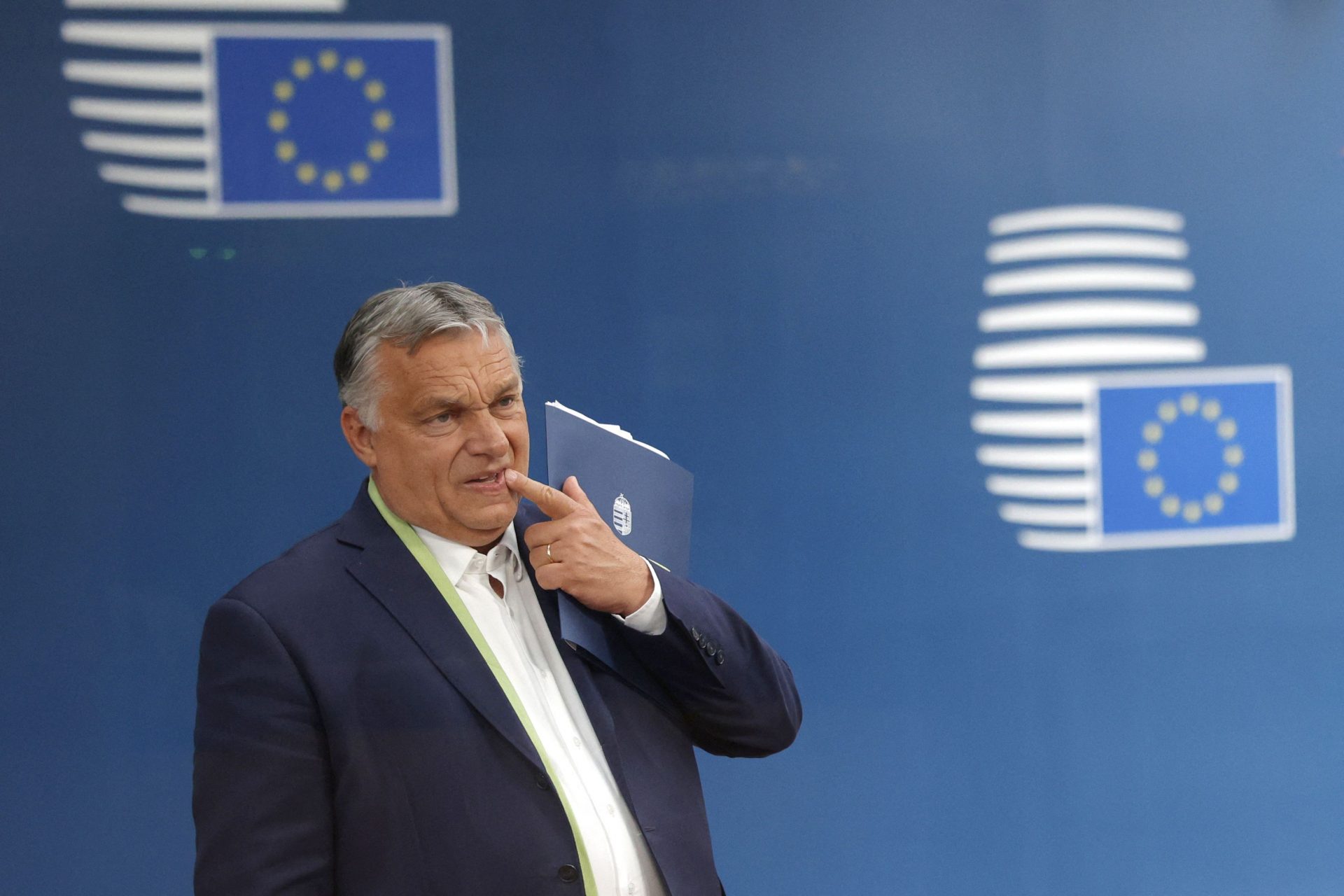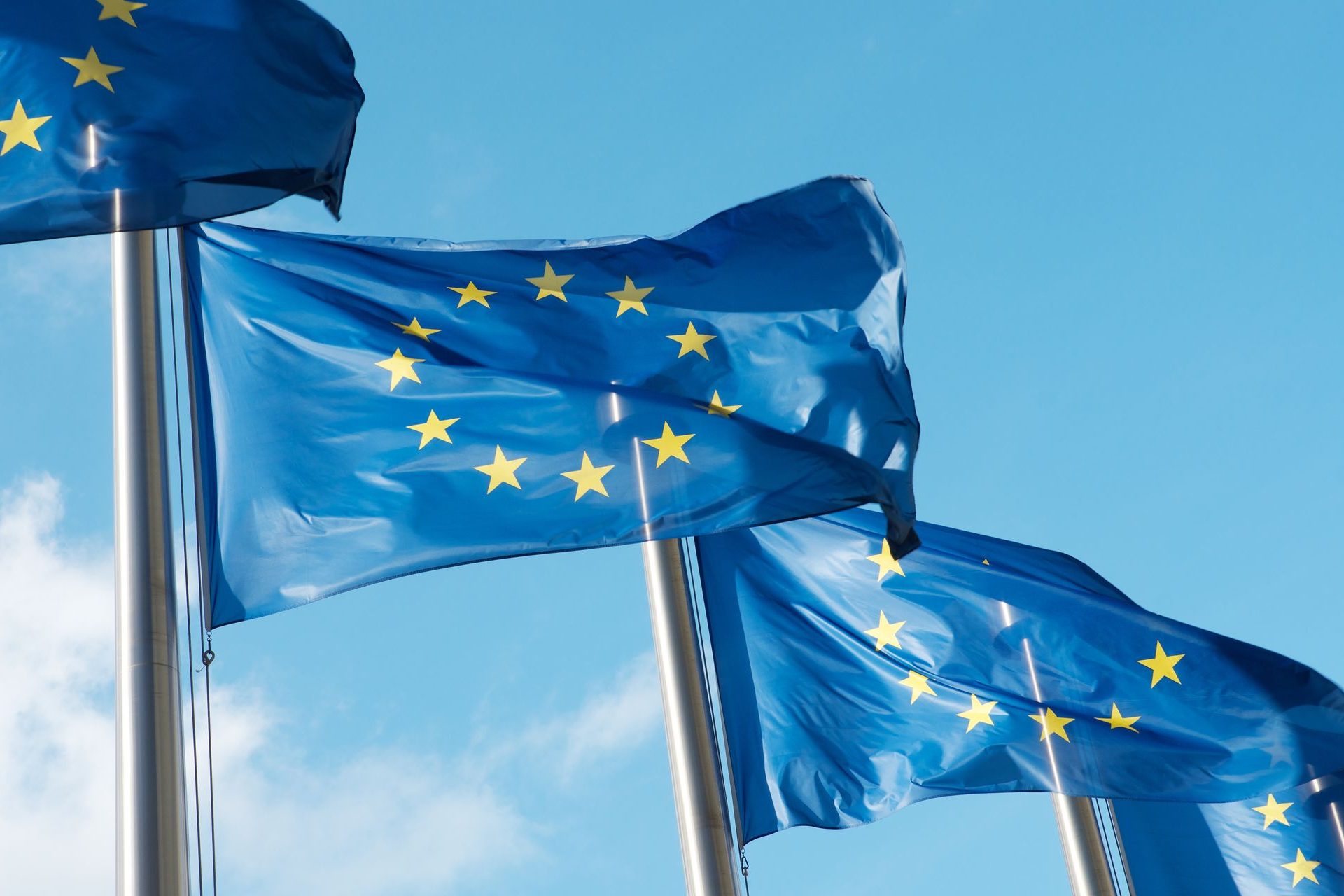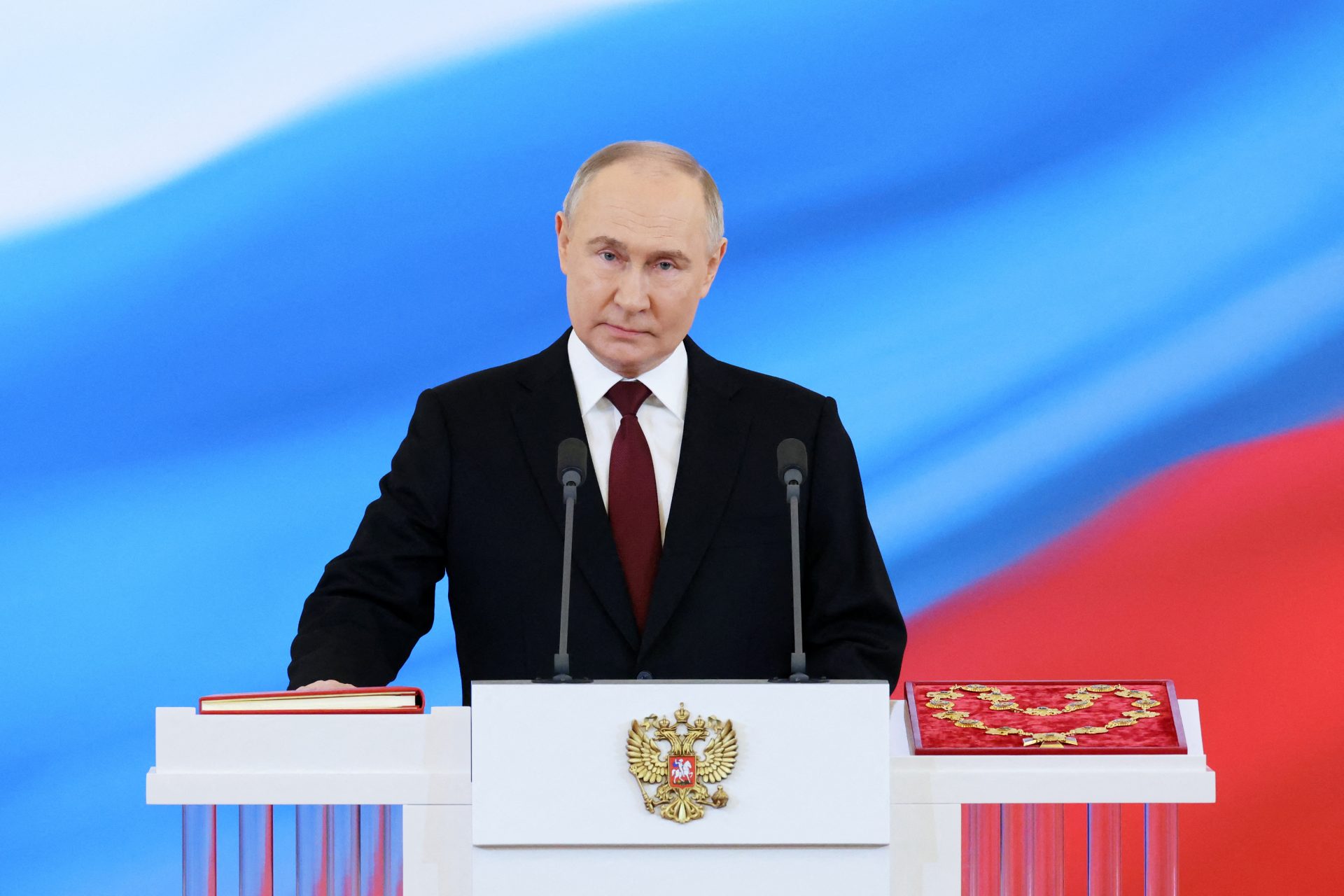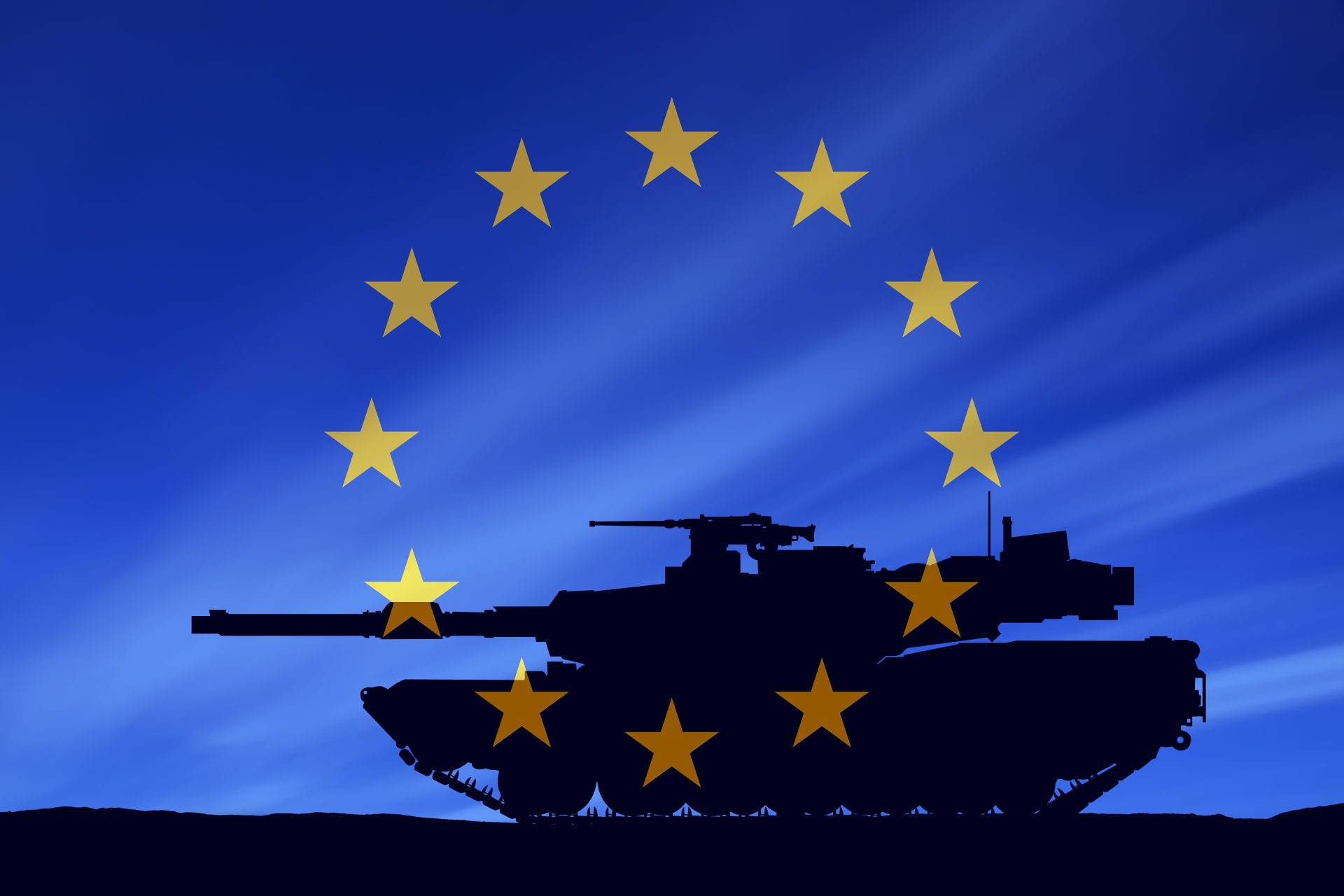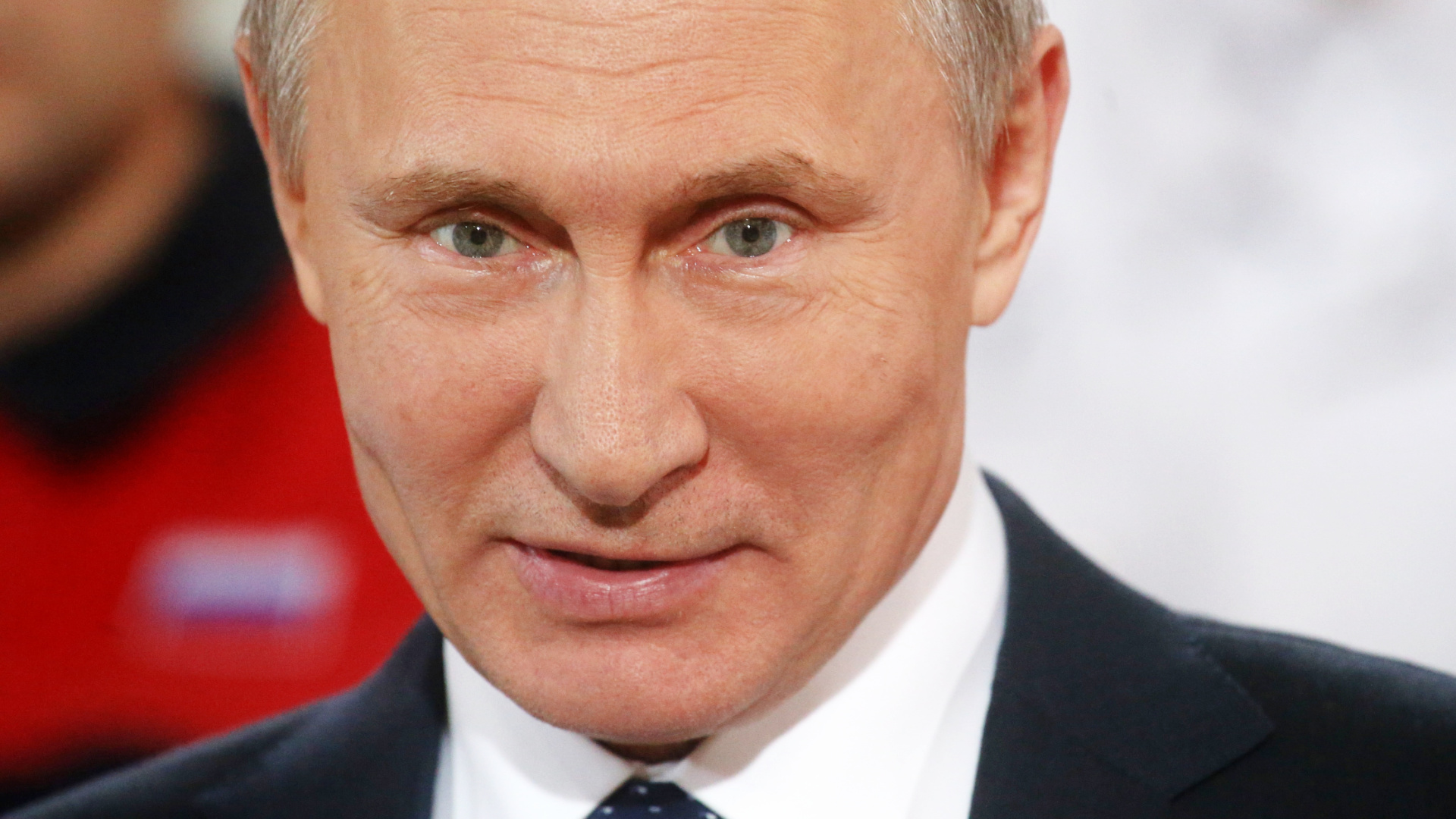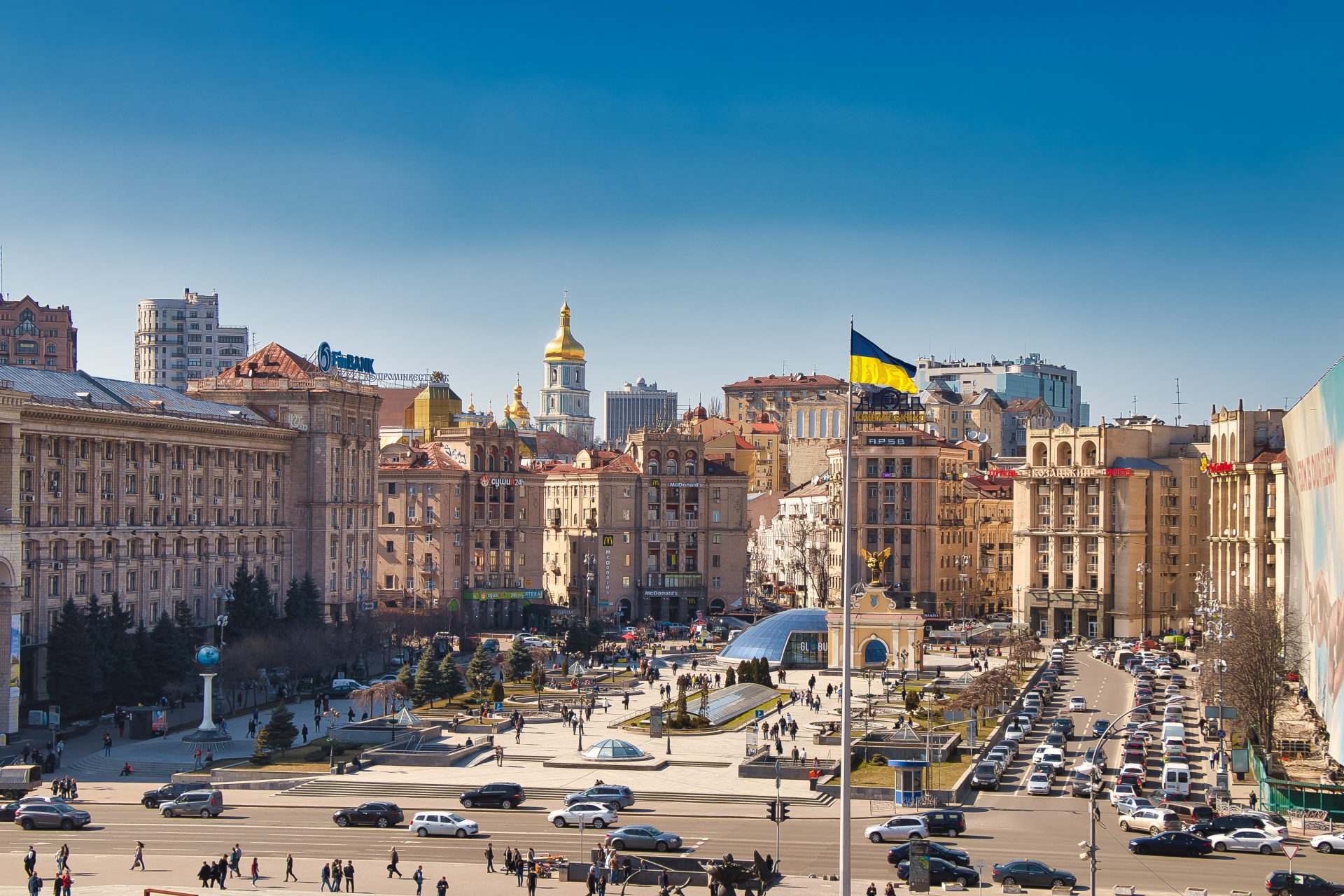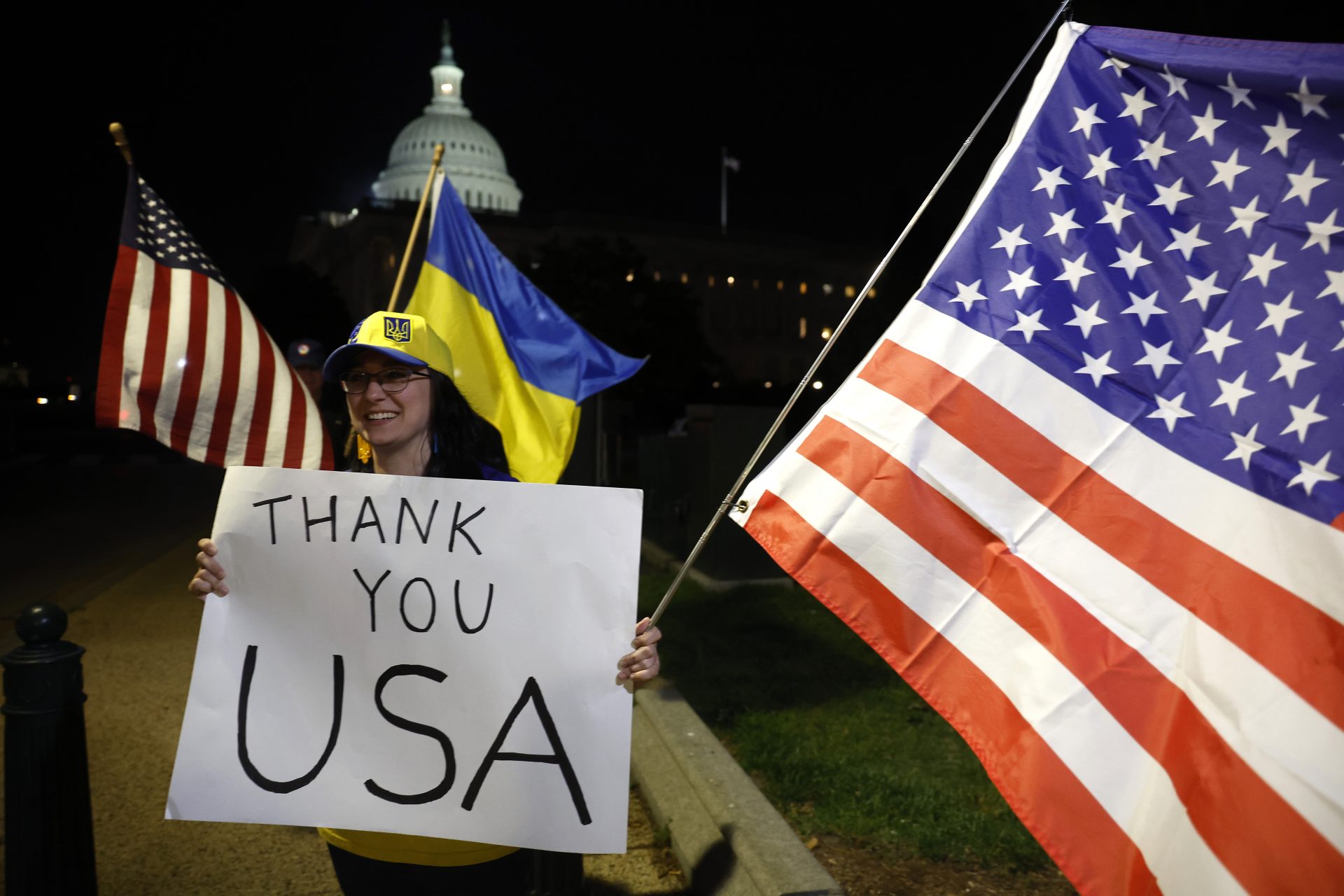Upward trajectory of far-right support
“Geert Wilders’ shock victory in the Dutch general election confirms the upward trajectory of Europe’s populist and far-right parties”, writes The Guardian’s Europe correspondent Jon Henley.
37 seats in the Netherlands’ parliament
Wilders’ ‘Party for Freedom’ (PVV), which is anti-European Union, anti-Muslim and anti—immigration, won 37 seats in last week’s ballot, more than twice its 2021 total.
He might not be able to form a government
However, Wilders is expected to struggle and maybe fail to form a government with a majority in the Netherlands’ 150-seat parliament, according to several analysts.
Nexit? Banning the Qur’an?
And even if he manages to do it, the coalition process of “endless compromise and concession by three, four or more parties means the most extreme parts of his manifesto, from banning the Qur’an to holding a Nexit referendum, are not about to become government policy,” writes Henly.
Rise in far-right sentiment
However, the Dutch Donald Trump’s victory, does reassure the premise that a rise in far-right and populist sentiment is growing and spreading through Europe, strengthening these kind of political leaders.
Viktor Orbán in Hungary
Hungary’s far-right prime Minister Viktor Orbán, who opposes Ukraine joining the EU and has said in a public speech that Europeans should not “mix with other races”, extended his congratulations to Wilders through X saying “Europe is waking up”.
“Migrants’ invasion” and “gender propaganda”
"We will resist the crazy ideas of Brussels bureaucrats, the migrants' invasion, the gender propaganda, and we will resist the illusions over the war and Ukraine's unprepared EU membership," Orbán told his party, according to Reuters.
Giorgia Meloni in Italy
Giorgia Meloni, whose party has neofascist roots, heads Italy’s farthest-right government since the Second World War, Reuters reported.
Anti-LGBTQ rhetoric
While she changed her approach on immigration since taking office, introducing legislation that could see more than a million migrants arrive through legal channels, according to Politico, she has strengthened her anti-LGBTQ rhetoric.
Taking away parental rights of same-sex couples
In August, Meloni demanded councils register only biological parents on birth certificates, leaving same-sex parents in legal limbo, several media reported.
Photo: sign reads “you explain to my son that I am not his mother.”
Greece: three far-right parties in parliament
In Greece, three far-right parties won 12% of seats in the June elections. One of them, Spartans, is backed by former Golden Dawn frontman Ilias Kasidiaris, Al Jazeera reported. Kasidiaris is currently in prison and neo-Nazi Golden Dawn is now considered a criminal organization.
Growing support for Marine Le Pen in France
In France, far-right Marine Le Pen would score a 55% victory over President Macron if they faced each other today, a recent survey carried out by the Elabe group for the BFM TV channel indicated.
She has called Islamism the biggest danger
As Le Pen prepares to run for a fourth time for president in 2027, taking advantage of the conflict in the Middle East, her anti—immigration party is promising to protect French Jews from what it calls “the biggest danger”: Islamism.
Far-right and populism in Britain
Several analysts also point to Britain as being under populist, far-right influence for a while now, noting the extreme nationalist sloganeering of the Brexit campaign, the tories’ “war on woke”, and Sunak’s unlawful plan to send immigrants to Rwanda.
Populist Robert Fico in Slovakia
Far-right ideals have also taken over in Slovakia, with the far-right Slovak National Party among the coalition partners supporting populist Robert Fico, who although hails from the far left, opposes immigration and LGBTQ rights.
Chega party in Portugal
Similarly, in Portugal, Chega, the third largest party in the country, strongly denies being far-right, despite its racist and anti-migrant narratives. They prefer to be considered populist, according to Euronews.
The rise of the controversial FPO in Austria
In Austria, the far-right populist Freedom Party of Austria (FPO) is expected to win next year’s presidential election, according to several polls.
An extremist promotional video
In September, a two-minute promotional video which splices an extremist conspiracy theory that white Europeans are being replaced by migrants with images of Notre Dame in Paris in flames was made by the party's youth wing, AFP reported.
Photo: YouTube CRUX
Glorifying Austria’s Nazi past
The video also showed the party's youth members taking part in torchlight processions and standing below the Vienna balcony where Adolf Hitler gave his iconic speech when he returned to his homeland in triumph after the Nazis annexed Austria in 1938.
Rise of the far-right AfD in Germany
In Germany, the far-right party Alternative für Deutschland (AfD)
is currently polling in second place nationally, and it has more potential voters than any of the three parties in the governing coalition, according to Politico.
Crackdown on freedom of speech
Recent peaceful solidarity protests in Germany, regarding the conflict in the Middle East, have resulted in hundreds of arrests and physical violence from authorities towards protesters, German media has reported.
Flemish nationalism in Belgium
In Belgium, far-right Flemish nationalists are set to make big gains in the Belgian elections in June 2024.
Vlaams Belang party: the biggest political force in Belgium
According to Politico’s Poll of Polls, the far-right Vlaams Belang party, which wants to turn Flanders into a fully independent, breakaway state, is now the biggest political force in the country.
Threat of a crisis in Belgium
Now the strains between Dutch-speaking Flanders, in the north, and French-speaking Wallonia in the south of the country threaten a far bigger crisis.
“Belgium is a forced marriage”
“We believe Belgium is a forced marriage,” Tom Van Grieken (pictured right), the party’s president, told Politico. “If one of them wants a divorce, we’ll talk that out as adults. If they don’t want to come to the table with us, we’ll do it unilaterally.”
Far-right in the Nordic countries
The European far-right has even reached the Nordic countries, where both Finland and Sweden have current far-right coalitions.
Photo: Jimmie Akesson, leader of the far-right Sweden Democrats party.
Far-right setbacks in the EU
However, there’s a few European countries where the far right has had some setbacks politically, such as Poland, Spain and Ireland. But far-right sentiment among their populations has nevertheless come to light recently.
Protests against Pedro Sánchez’s win in Madrid
After socialist Pedro Sanchez was re-elected as Spain’s prime minister, around 4,000 people gathered outside Spain’s Socialist Party headquarters in Madrid to protest, according to local media.
Fires and clashes with police
The protests, supported by the far-right party Vox, ended up in violent clashes with police, burning garbage cans and seven arrests, according to government officials.
Fascist remarks in the protests
One of the protestors waved a Nazi flag and a chorus of others sang ‘Cara al Sol’, the anthem of Spain’s fascist Falangist party, which became Spain’s national anthem under Francisco Franco’s dictatorship, according to Spanish media footage.
Far-right riots in Dublin, Ireland
At the same time, in Dublin, Ireland, a mob of an estimated 500 people rampaged through the city center after three children were hospitalised over a knife attack, following unconfirmed reports on social media that the attacks were carried out by an “illegal immigrant”, local media reported.
Disinformation and anti-immigrant sentiment
Social workers told AFP that the hours-long riot, which saw looters burn vehicles, smash storefronts and attack police in “the worst violence Dublin has experienced in decades”, came as no surprise, given a rise of disinformation and anti-immigrant sentiment being spread on social media.
A homeless refugee tent camp burnt
An example of this was also seen in May, when anti-immigrant protesters set fire to a tent camp in Dublin where homeless refugees were living, according to The Irish Times.
A refugee crisis
Irish Prime Minister Leo Varadkar said rioters "brought shame on Ireland" and that the violence "is not who we are". However, in June he said that Ireland was going through a refugee crisis “never experienced before, according to AFP.
Anti-immigration: the most common trait among the far-right
The “most obvious trait” the European far-right governments share is “a powerful hostility towards immigration, particularly of Muslims, and a willingness to contemplate measures that have previously been dismissed as impractical, intolerable or illegal”, writes The Financial Times chief of foreign affairs, Gideon Rachman.
Changing the European Union from within
Rachman also lists euroescepticism as a common factor, but he says that rather than quitting the EU, “far-right parties are much more likely to try to change it from within” as they are already doing.
Will the EU change its principles?
“They’re taking aim at the EU’s human rights laws and its commitment to the UN convention on refugees,” writes Rachman. And if they continue to make significant national wins, he says, Europe could become “a very different beast a few years from now.”



